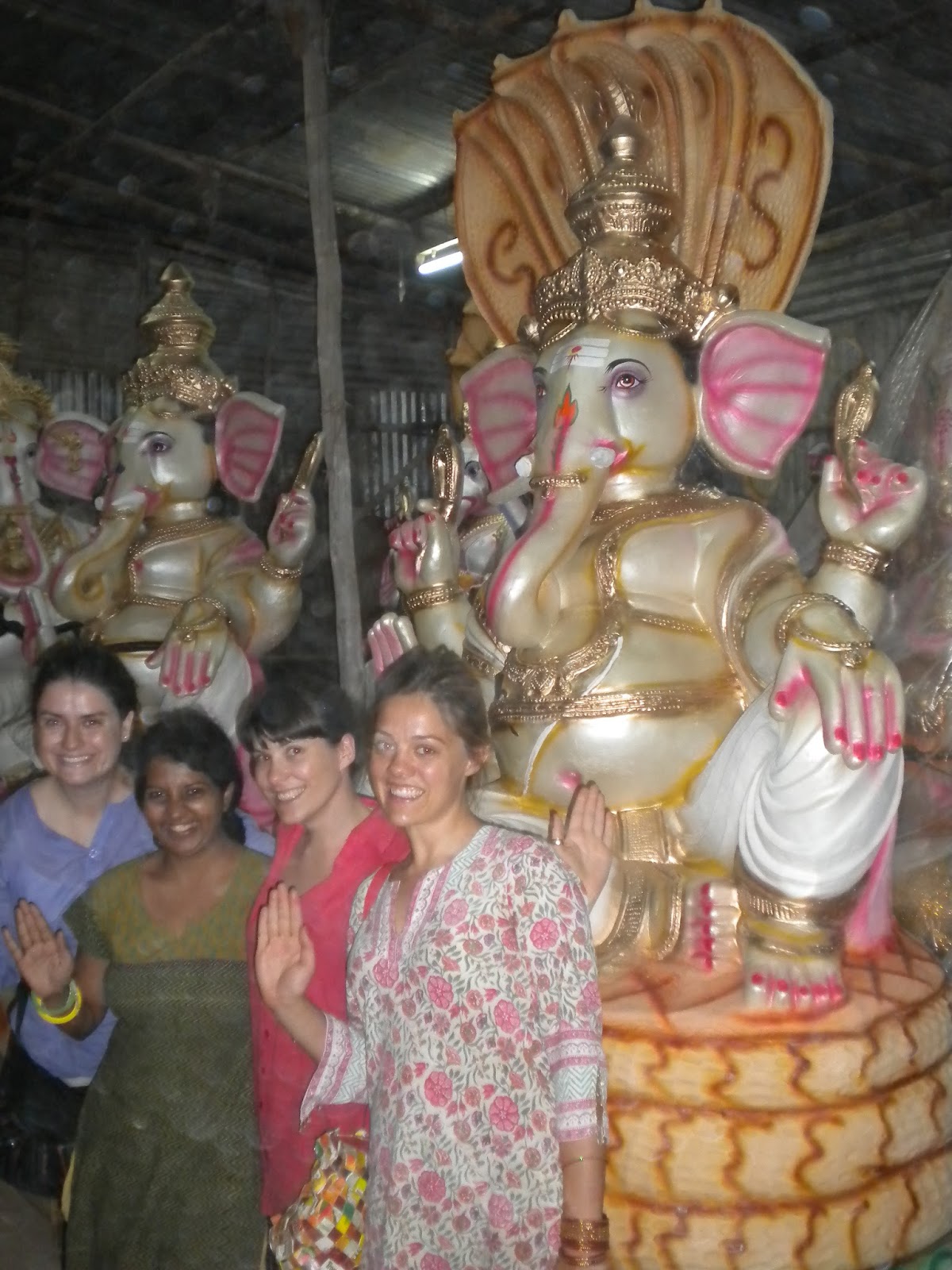So - if you've made it to here, the last post in this blog series - AWESOME:)
(If you're starting here, be sure to check out some of the other posts too for context!!)
Throughout my time in Bangalore, I've really had a wonderful opportunity to witness social entrepreneurship (and social entrepreneurs) in action.
I, of course, find this super fascinating and have been collecting some thoughts now and then about how Pollinate just oozes a sense of entrepreneurship.
Some things that have resonated so far regarding the path of Pollinate Energy to where they are now:
My thoughts on the vibe within the Pollinate Energy team:
Some contextual factors :
If you have any questions feel free to reach out!
(If you're starting here, be sure to check out some of the other posts too for context!!)
Throughout my time in Bangalore, I've really had a wonderful opportunity to witness social entrepreneurship (and social entrepreneurs) in action.
I, of course, find this super fascinating and have been collecting some thoughts now and then about how Pollinate just oozes a sense of entrepreneurship.
Some things that have resonated so far regarding the path of Pollinate Energy to where they are now:
- Importance of getting that first sponsor onboard to snowball the involvement of others
- Creating credibility (often through sponsors) is key to raising funds
- Pivoting throughout the pilot phases of their operations
- Faking it til you make it
- Direction driven by the results of a solid research base, with a focus on getting as much research about the communities as possible from actually talking with/being with the communities
 |
| Bangalore city at night |
My thoughts on the vibe within the Pollinate Energy team:
- Overarching passion for what they're doing - it's really inspiring to see the co-founders really glowing with passion as they talk about their story and where they plan to go
- Guiding principle of customers at the centre (just like any good business!) - it's been amazing to hear the co-founders talk about the needs of the customer: With regards to introducing cookstoves into the communities, the importance of listening to the needs of the customer has been reinforced several times. One of the co-founders' messages: If her [the woman in the slum community] major concern is the time that it takes to cook, then our selling point is how the efficiency of the flame results in faster cooking time, regardless of all of the other benefits regarding her health. There's no point emphasising the health benefits if she doesn't see sitting in smoke as an issue. Interestingly, this thought process is also present in other places e.g. Mumbai where cookstoves were sold as a way for individuals to have more time to watch TV! Seems slightly counter-intuitive in a way as you'd think that the overwhelming health benefits would be the highest selling point, but marketing is not necessarily a logical science!
 |
| A lady cooking on our cookstove for the first time - sometimes faster cooking time is a more relevant selling point than the health benefits! |
- A real concern for what's best for the customer and absolutely no arrogance or transmission of any feeling of 'Pollinate knows best'. For e.g when we returned to communities where families had bought a trial of the cookstove to find the cookstoves still in their boxes, the reaction of one of the Pollinate co-founders was the following: We need to find out exactly why she is not using this cookstove. We know that it's not a perfect product but want to work out whether it's worth pursuing for the benefits it does bring. If it is not being used because it's not a good product, then we will find another product that is. At the end of the day, no cookstoves should be found in boxes! We want to make positive change, not push unhelpful products.
- Attitude of experimentation and agility in fast decision making
- A culture of inclusivity, gratitude and celebration (quite amazing to see in action actually!)
- A team of friends with complementary skills and a shared purpose
- Personal energy gained from direct interaction with communities/ direct positive reinforcement of purpose on a very individual basis
 |
| Some of the kids from Farm community - their smiles reiterate the purpose of Pollinate in a very direct and real way! |
Some contextual factors :
- India itself is just oozing entrepreneurial spirit - there is definitely an attitude of 'open a shop and people will come'
- Some momentum building for change - see the bottom half of this post re policies and programs initiated by Indian government
- On the negative, there are still many issues with implementation and corruption and this can be a key contextual disabler at times (or a reason for even more creative activities!)
- Price arbitrage - by fundraising in AUD, the money can go a lot further in an Indian context than it would if this social business was starting in Sydney. It gives you more time to work out if the opportunity is a go-er
I'm sure that these thoughts are only scratching the surface, but needless to say I'm so very happy and grateful to have had the opportunity to be involved with such a wonderful organisation and a fascinating group of Young Professionals!
 |
| The amazing group I spent 2 weeks with - Young Professionals from AU/NZ/India, Pollinators, Pollinate staff and Founders |
If any of this resonates with you and is spurring you to seek a similar amazing experience of your own, be sure to check out the Pollinate Energy website for future Fellows and Young Professional Programs!
If you have any questions feel free to reach out!
That's all from me folks :)
Thanks for reading!
Lorenn :)
Lorenn :)




















.JPG)











.JPG)
.JPG)




.JPG)









